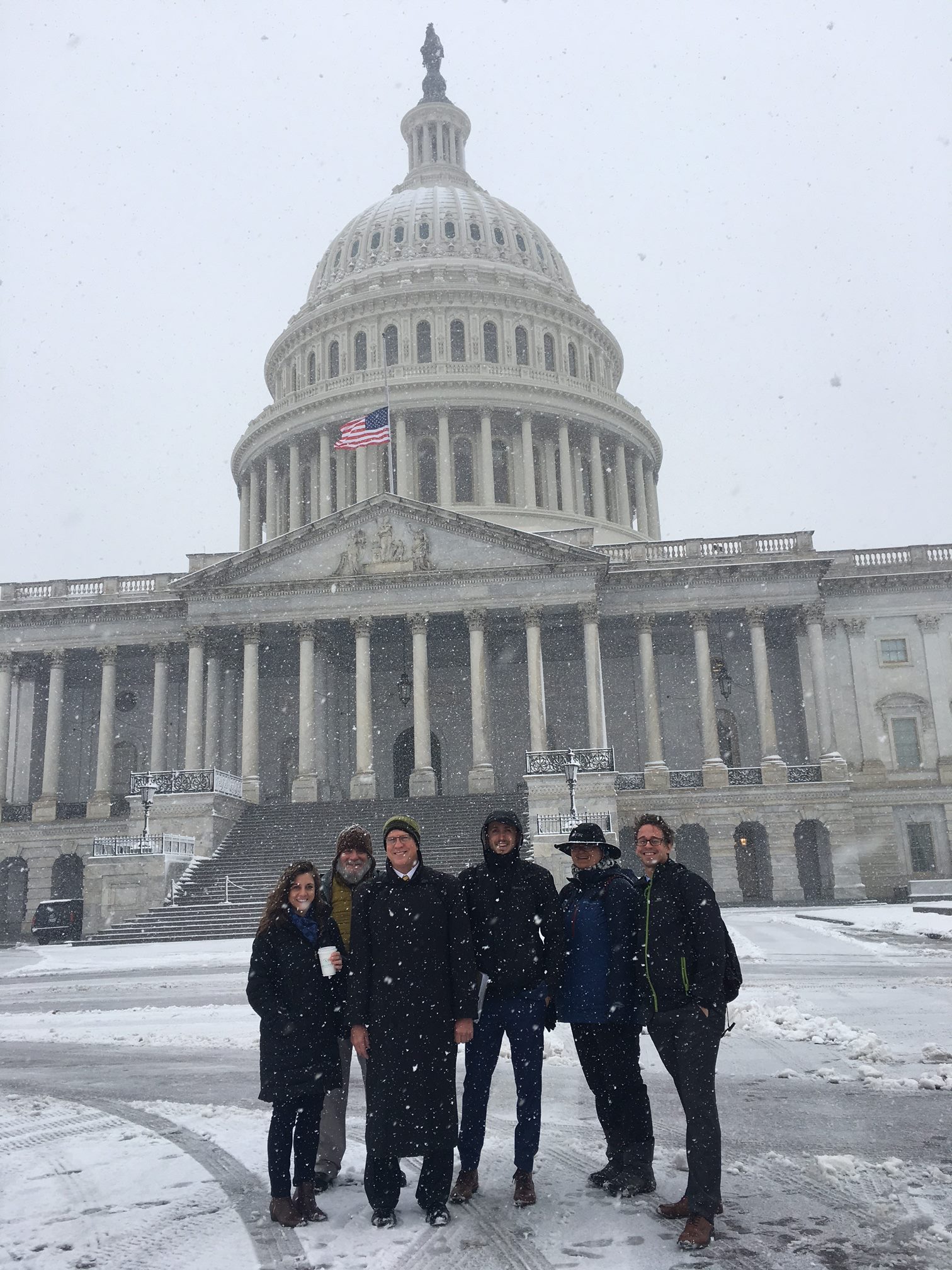Making It To 2025
In early 2018, our Pollution Limits workgroup developed a joint advocacy plan to ensure strong and coordinated outreach among Coalition members ahead of the midpoint assessment, which indicated how close we are to reaching our bay restoration goals. This included strategies on how to communicate with the public about the successes of the cleanup and ways to engage and educate local officials about the importance of clean water projects. Many of the Coalition’s members participated in the development of the plan and have already started taking action.
As we enter the last phase of the cleanup, we have an opportunity to advocate for strong Phase III Watershed Implementation Plans (WIPs), which outline how Bay jurisdictions, including local governments, will achieve pollution reductions from now through 2025. As a part of the advocacy plan, the Coalition developed Engagement Guides for each state that provide our members with information and resources they need to advocate for strong WIPs. This advocacy plan builds the capacity of our members to engage in the restoration effort and helps to further our goal of returning clean water to the region.
Supporting Virginia Farmers
The Virginia Agricultural Cost-Share (VACS) program has distributed more than $200 million dollars to help thousands of farmers and landowners implement practices like stream exclusion fencing and forest buffers, which help prevent pollution from reaching local waterways and the Chesapeake Bay. In 2018, the Coalition’s Communications Workgroup partnered with our Virginia members to demonstrate the need for increased and sustained funding for the VACS program to the Virginia General Assembly.
The workgroup identified and created materials that would be helpful in conducting educational outreach to newly elected officials, including one-pagers, before and after photos of projects, testimonials, and talking points. The workgroup also determined that a series of videos highlighting Virginia farmers utilizing the state cost-share program would help to elevate this issue.
The Coalition interviewed three different farmers from strategic areas of Virginia about their experience with the VACS program and why the funding is so important. What the videos show is that farmers not only benefit economically from installing these projects, but they also understand the importance of conservation and want to protect their local waterways.
Stormwater Success Stories
A key component of ensuring that we are consistently moving the needle forward when it comes to reducing pollution is telling the story of the importance of on the ground restoration projects. This can be difficult since the projects and practices the Chesapeake community are advocating for are often confusing and jargon-filled concepts. A goal of the Coalition is to work with our members to overcome these barriers and identify ways that our community can better communicate and promote clean water projects around the watershed.
To support this effort, the Coalition partnered with Maryland LCV and the MOST Center on a Stormwater Success Stories outreach campaign. Maryland LCV and MOST Center worked together to produce the “POLLUTION SOLUTIONS: Case Stories from the Chesapeake” website. This interactive site is a tool that allows users to search through more than 50 different real-life pollution reducing projects in Maryland based on location or project type. The purpose is to provide a one stop shop for visitors to access and even download information on projects that can then be used for their promotional or educational purposes. Many Coalition members have downloaded project descriptions for use in meetings with their local governments to encourage support for stormwater projects in their own communities.
September 2018 Stormwater Success Stories Training with Water Words that Work
Knowing that members were using these one-pagers in meetings with elected officials, we wanted to ensure that we were setting our members up for success. The Coalition partnered with Maryland LCV to apply for funding from the National Fish and Wildlife Foundation to train our members on best practices when it comes to communicating about stormwater projects using these one-pagers. In September 2018, the Coalition hosted its first training with Water Words That Work and more than 20 members of the Coalition. The day-long event focused on training our members through interactive role playing exercises and provided our members with takeaways that they could use in future meetings. Many of the attendees were from Montgomery County, Maryland, where almost all of their County Council members are term limited, meaning a whole new group of council members will need to be educated on the importance of funding stormwater projects. This will be the perfect opportunity for Coalition members to execute what they have learned.
In addition, the Coalition is working with members who attended the first training in September and utilizing existing meetings and forums to continue to train more Coalition members. In partnership with EarthForum of Howard County, who attended the training, the Coalition is presenting at a half-day event on communicating about stormwater success stories and Maryland LCV and Rock Creek Conservancy, who also attended the first training, will also be conducting a training at the Chesapeake Watershed Forum in November 2018. The Coalition is looking forward to seeing these new tools and skills executed in real-time in the coming months and years as we push for stronger support for these on the ground restoration projects.
Maryland's Fight for Forest Conservation
During this year's legislative session, the Coalition and its members in Maryland had a number of priorities, including improving the Forest Conservation Act (FCA). Between 1982 and 1997, the Chesapeake Bay watershed lost more than 750,000 acres of forestland. Today, there are about 24 million acres of forest and the watershed is losing about 70 acres each day. Maryland has not altered its FCA since 2013, which made this a priority for our members.
Our state lead, Maryland League of Conservation Voters, brought together more than 15 members of the Coalition around this issue to help coordinate and strategize around how to increase pressure to pass a new version of the bill. MDLCV held weekly calls where Coalition members would volunteer their time and support for writing op-eds, sending emails to state legislators, and even organized a lobby day.
In addition, the Coalition used this as an opportunity to pilot the first joint petition among Coalition members. A joint petition is when a number of groups sign their organization on to the same petition and send it out to their supporters for signing. When people see that a number of organizations are supporting a common goal, it can be much more powerful and increase signatures. This also acts as a list building campaign, where the participating organizations receive a new list of names of supporters from their fellow participants. This is something that has been done in other neighboring watershed, and the Coalition has wanted to try it in the Chesapeake.
The FCA joint petition included 10 Coalition members: National Wildlife Federation, Chesapeake Bay Foundation, League of Conservation Voters, Alliance for the Chesapeake Bay, Potomac Conservancy, Blue Water Baltimore, Clean Water Action, Maryland League of Conservation Voters, South River Federation, and Severn River Association. These organizations were selected due to their varying sizes, location, capacity, and member lists. After running the joint petition for a little over two weeks, the group received more than 3,700 signatures, and all participating organizations received new names to their lists.
In the end, the FCA did not pass this time, but the Coalition considers our effort a success. The ability for these different groups to come together and strategically work on a common issue and conduct a joint petition is something that would not have been possible without the framework of the Coalition. Our members will be ready to take up the banner once again in 2019!
2018 Bay Day on Capitol Hill
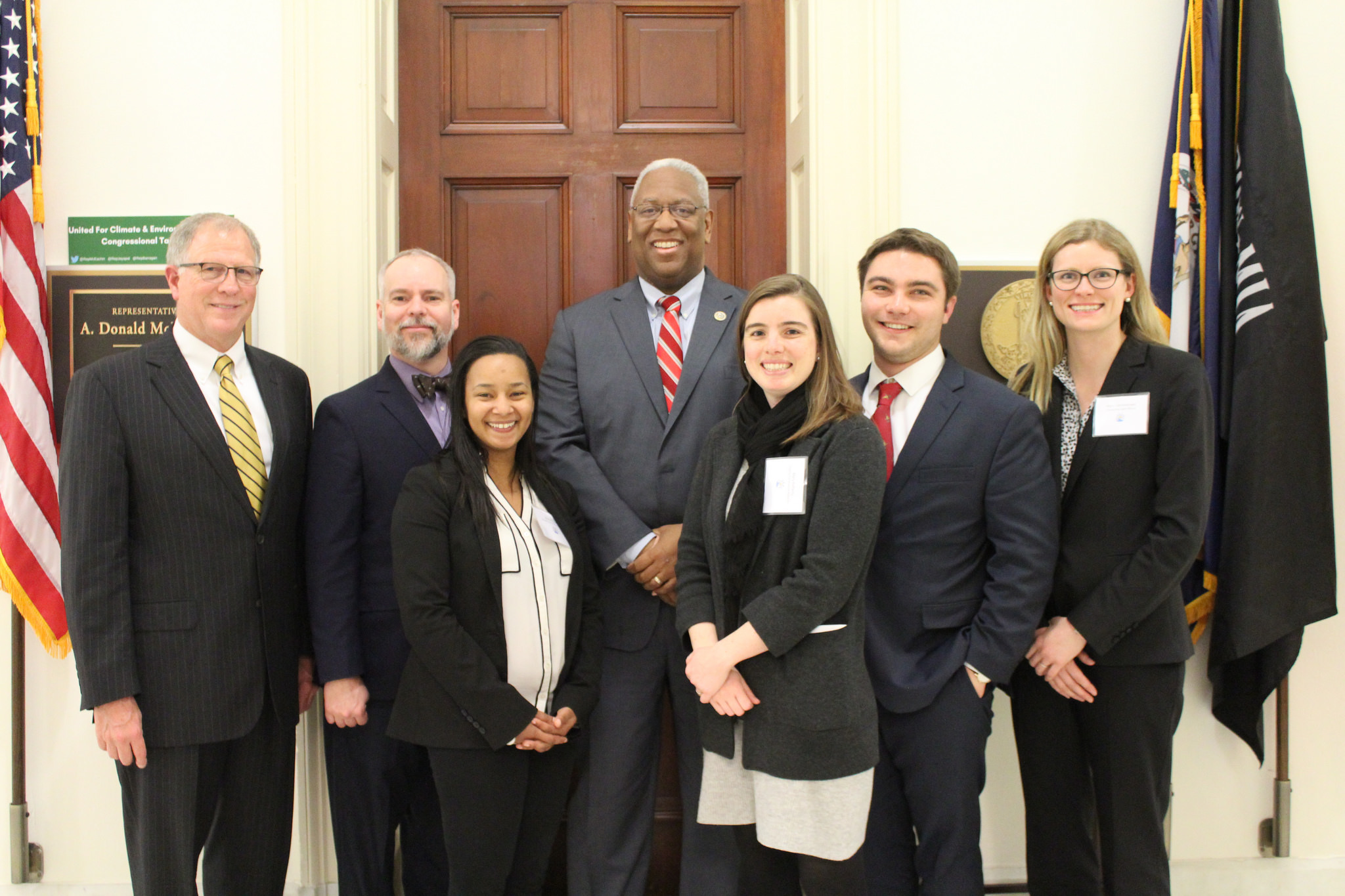
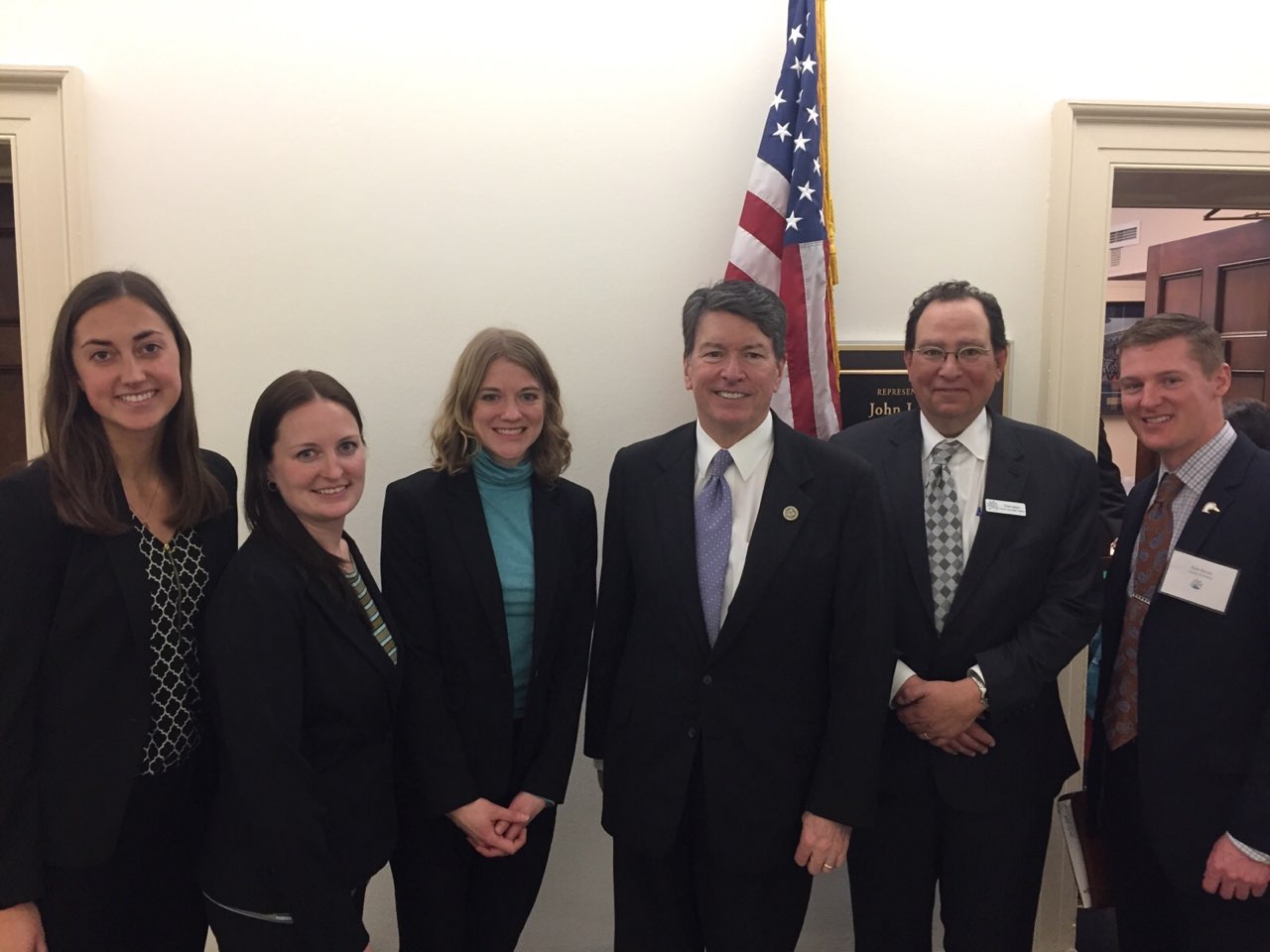
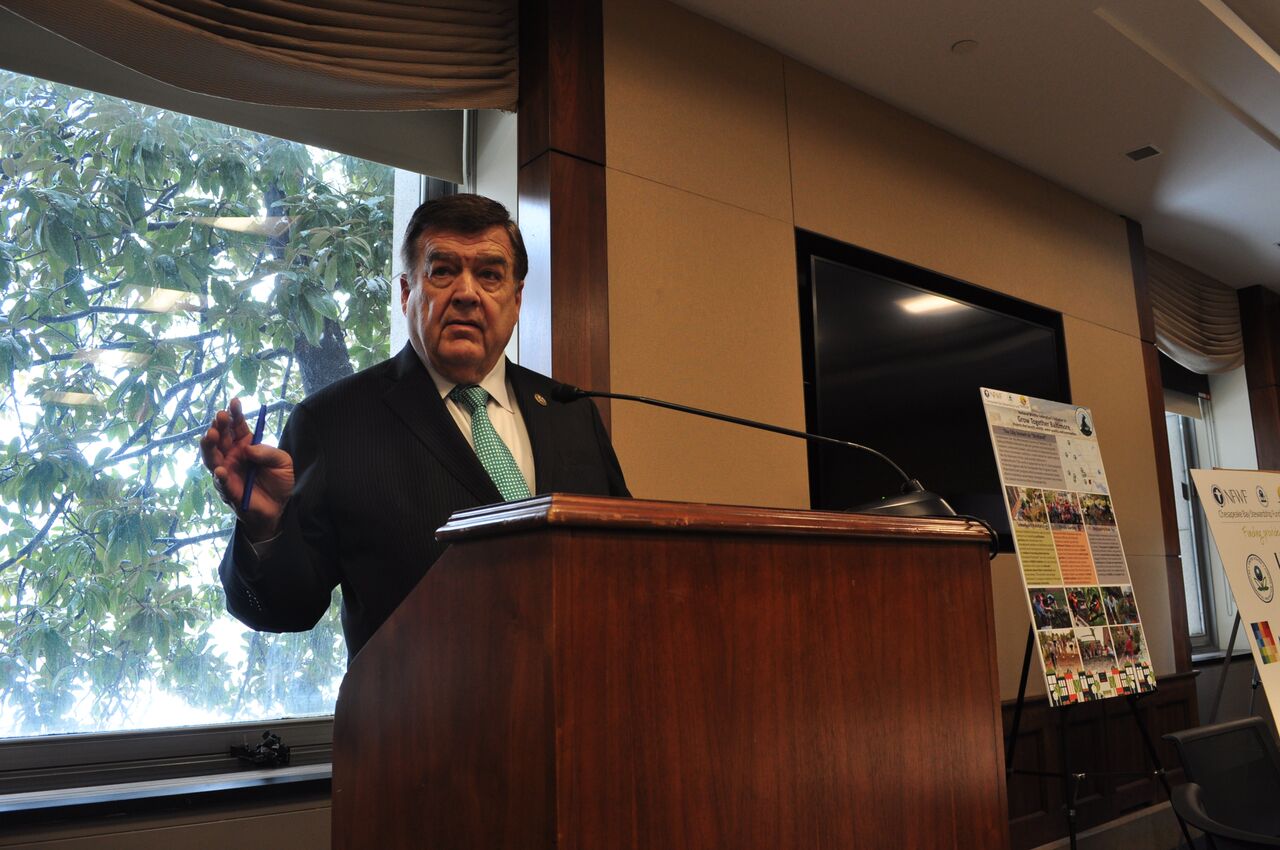
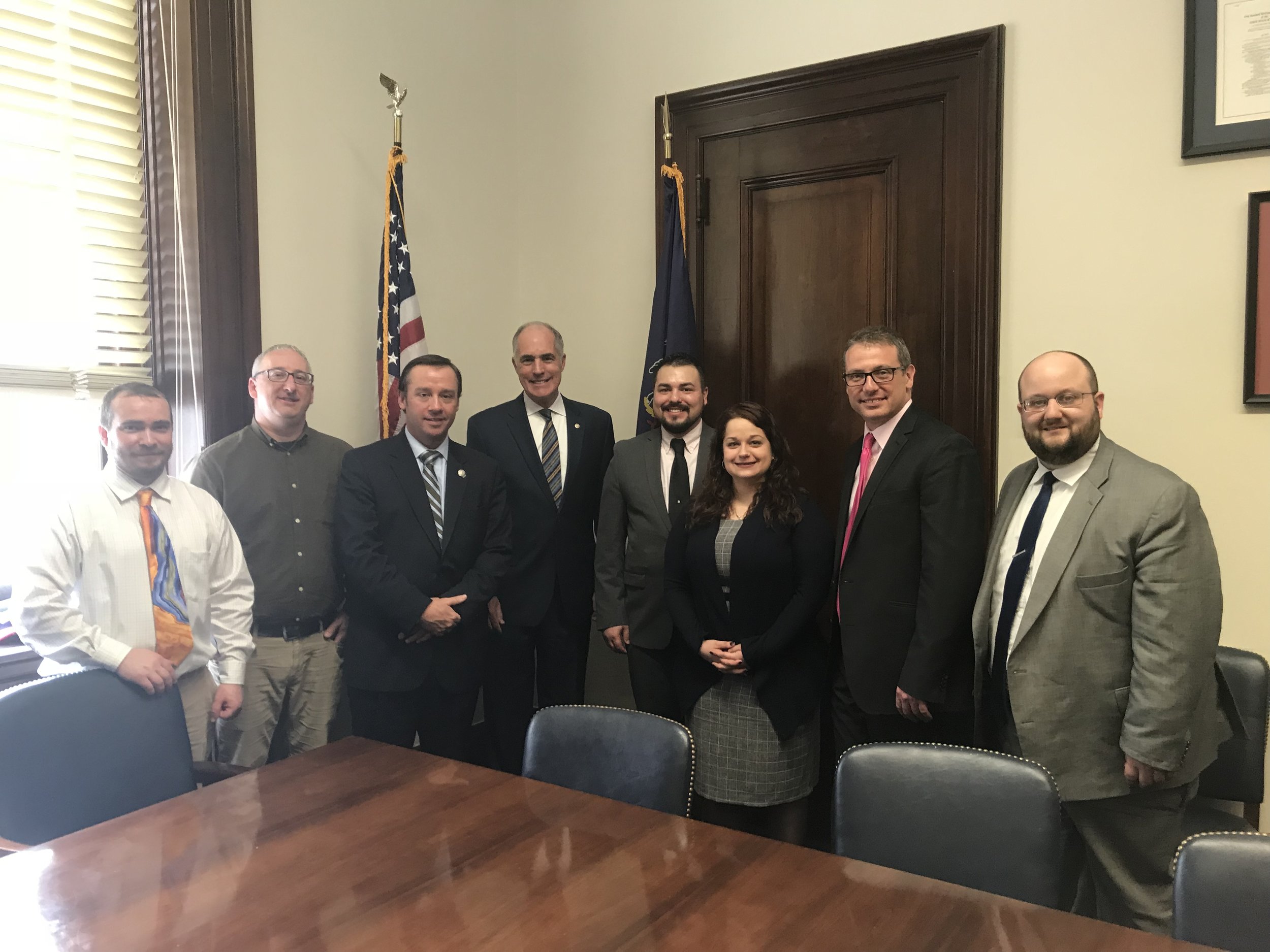
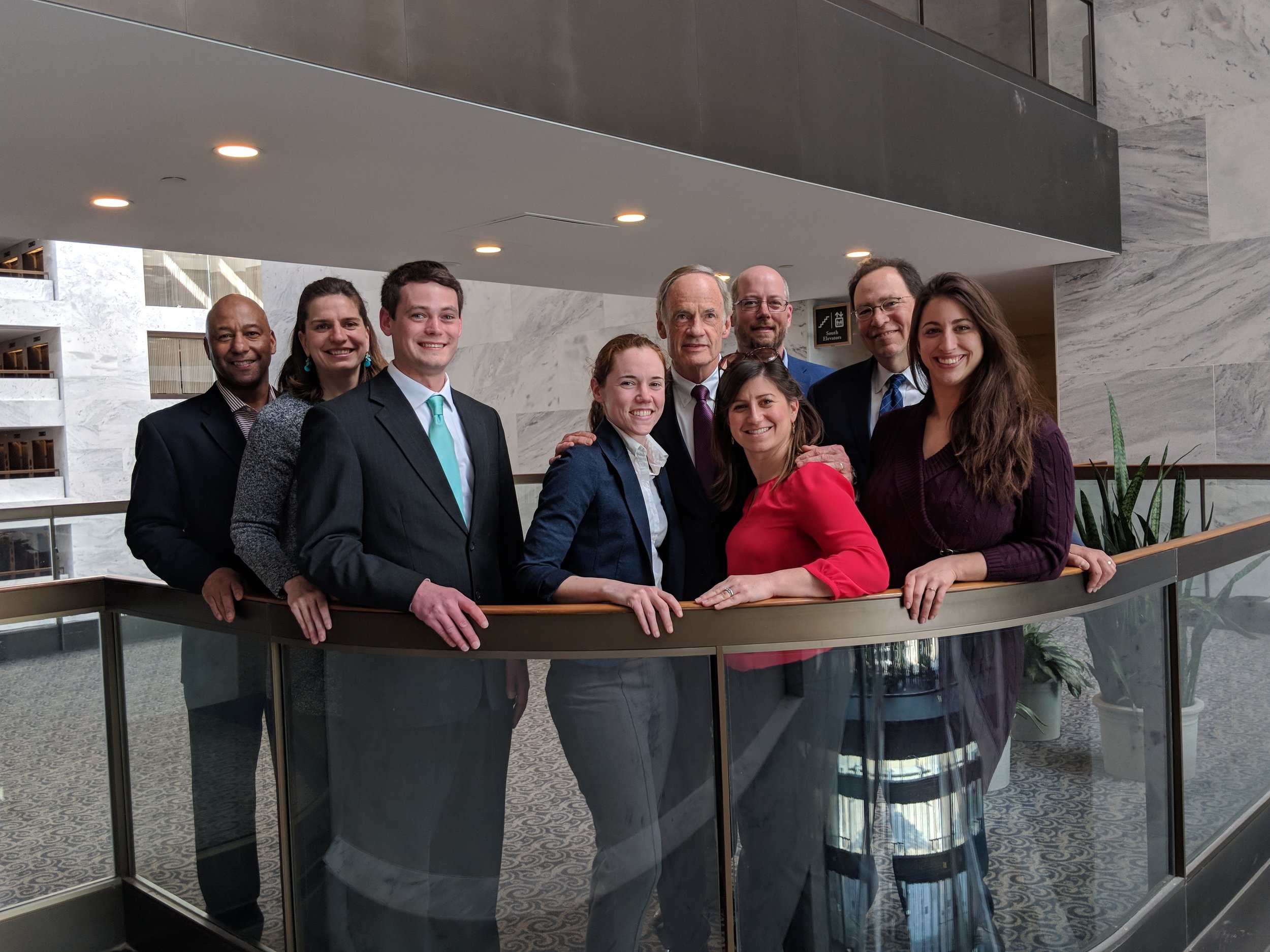
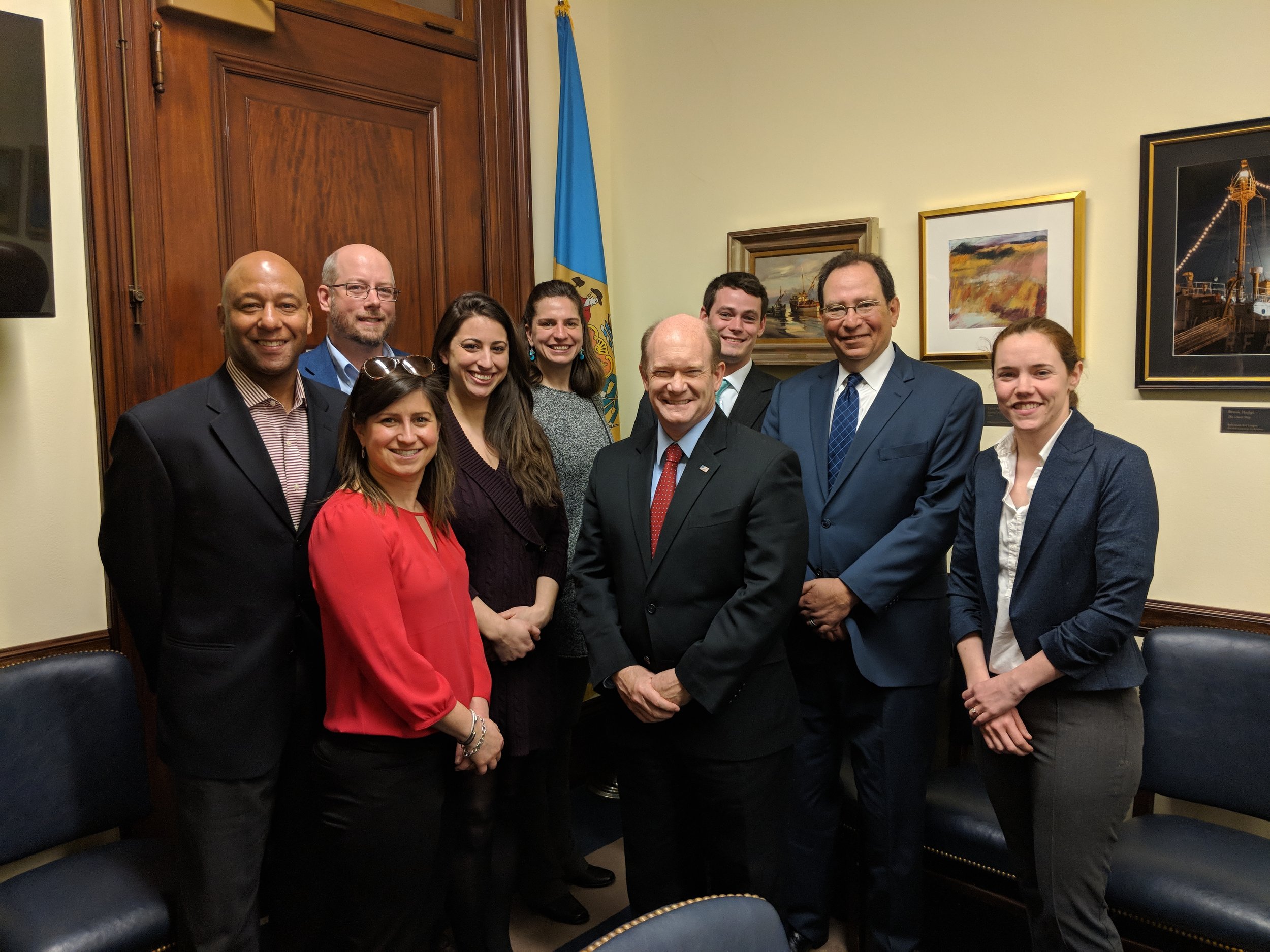
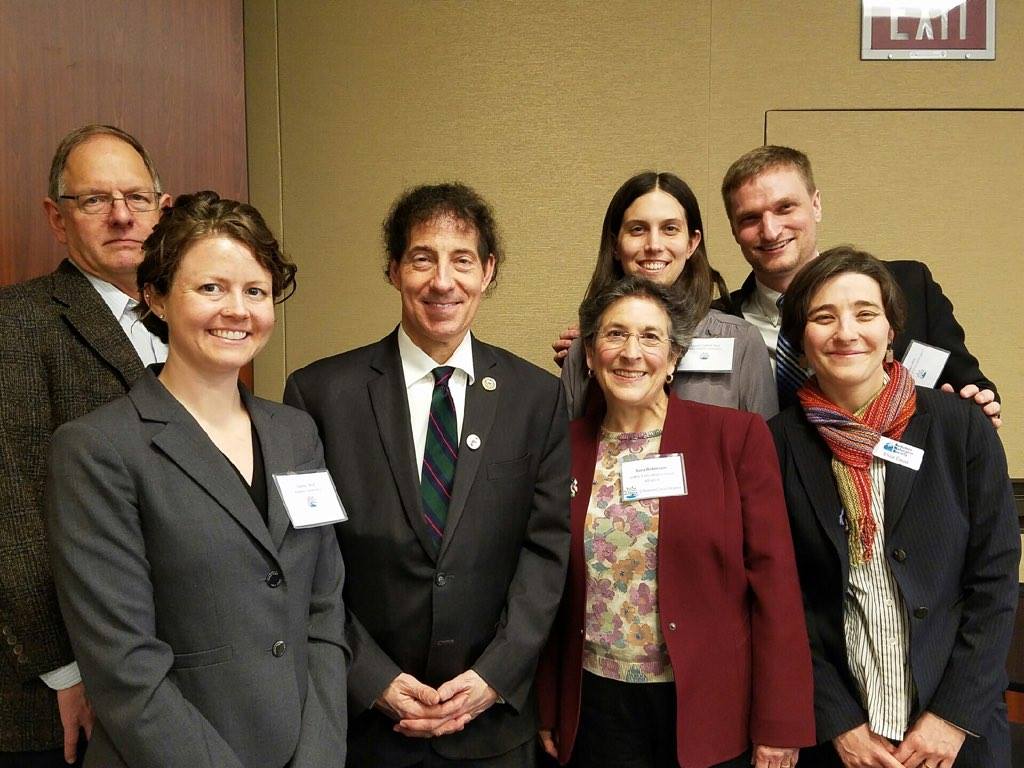
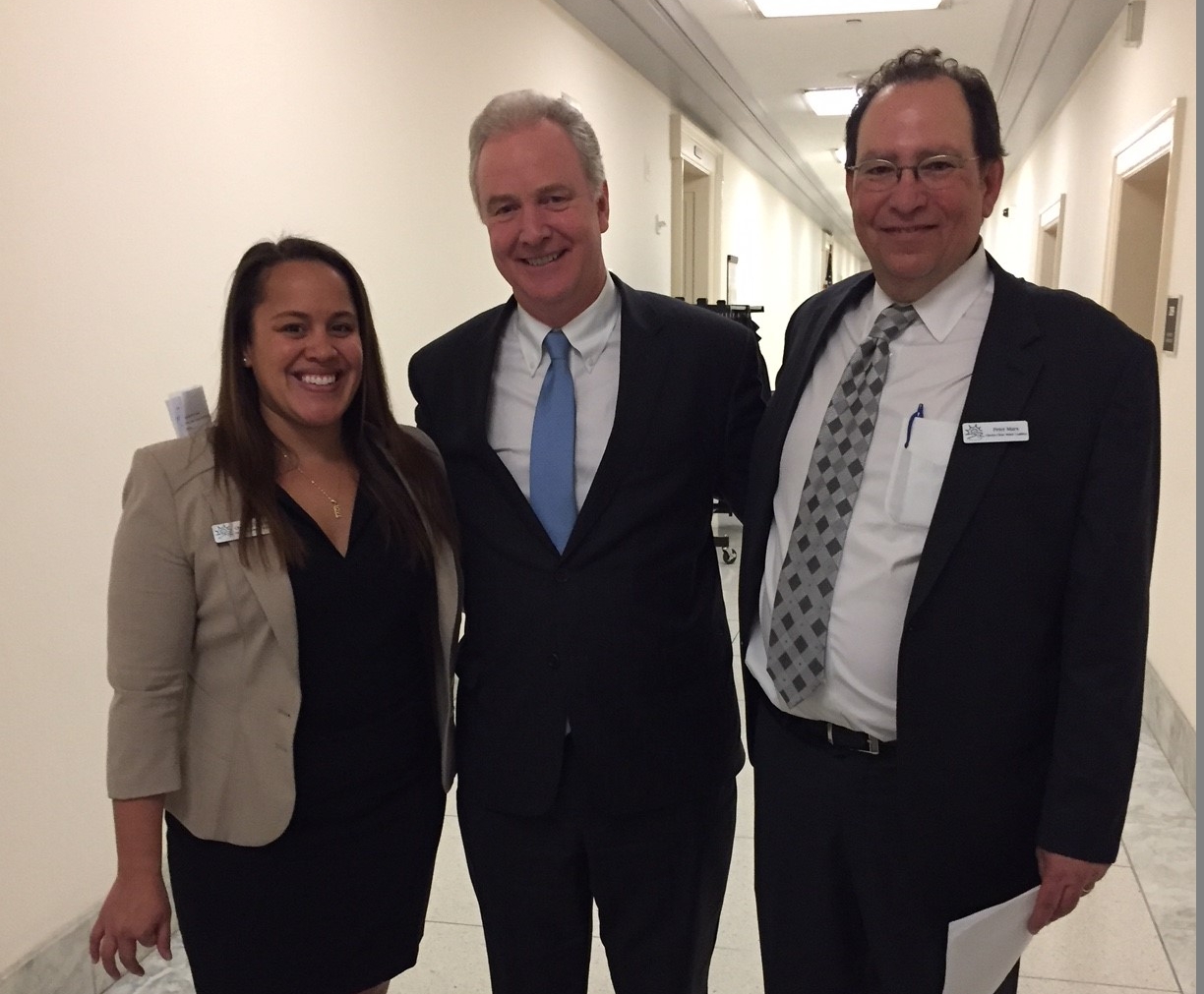
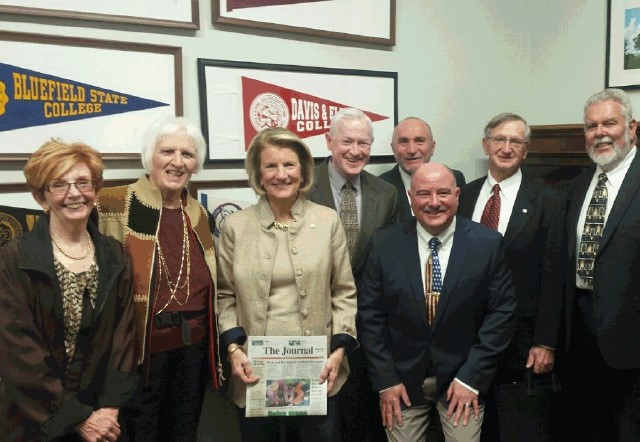
On March 21, more than 100 members of the Choose Clean Water Coalition and the Coalition for the Delaware River Watershed fought through a snowstorm to speak with their members of Congress about the importance of clean water. This was the 6th annual Chesapeake Bay Day on Capitol Hill for Choose Clean Water, a coalition of 239 nonprofit organizations focused on restoring and protecting clean water in the Chesapeake Bay watershed.
Despite the snow, the Coalition met with more than 20 members of Congress to discuss federal threats, like funding cuts to the Chesapeake Bay Program. Coalition members also had the pleasure of hearing from 10 different members of Congress at the Chesapeake Bay luncheon, including Senator Chris Van Hollen (D-MD), Congressman John Faso (R-NY), Congresman Dutch Ruppersberger (D-MD), Congressman Jamie Raskin (D-MD), Congressman Rob Wittman (R-VA), Congressman Bobby Scott (D-VA), Congressman Don McEachin (D-VA), Congressman Don Beyer (D-VA), Congresswoman Barbara Comstock (R-VA), Congressman Gerry Connolly (D-VA). The legislators spoke about life around the Chesapeake, where to find the best crab cakes, and of the future of clean water.
The Coalition for the Delaware River Watershed simultaneously scheduled meetings with the entire congressional delegation that represents the Delaware watershed. Although the snowstorm disrupted several meetings, the tenor of those that did take place was overwhelmingly positive with congressional members pledging to champion the Delaware on Capitol Hill. The result of Coalition’s two days on the Hill was a clear message to Members: fund the Delaware River Basin Conservation Act and its associated grant program the Delaware River Basin Restoration Program (DRBRP), a non-regulatory approach led by the US Fish and Wildlife Service. On March 23, the program received $5 million in funding as part of the fiscal year 2018 Omnibus spending bill approved by Congress. The Coalition for the Delaware River Watershed worked with Congress on the authorization of the Delaware River Basin Conservation Act in December 2016 that created the DRBRP, and through the newly funded program, money will finally begin flowing to local conservation projects throughout the region.
The result of months of collaboration and hard work paid off with the rejection by Congress of Trump’s fiscal year 2018 budget proposal, which aimed to zero out the Chesapeake Bay Program. The spending bill that passed includes a fully funded Chesapeake Bay budget of $73 million and $5 million for the Delaware River. We owe a huge thank you to all of the members of Congress who voted in support of protecting the Chesapeake Bay and the Delaware River. The fight for clean water continues as the president’s proposed FY19 budget has only $7.3 million allocated for the Chesapeake Bay and nothing for the Delaware River.









